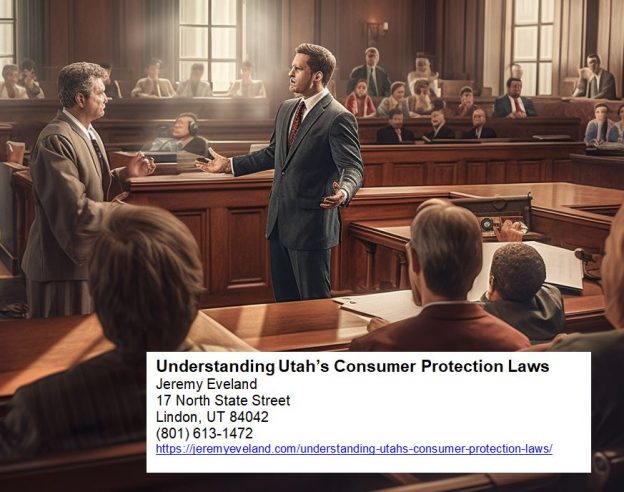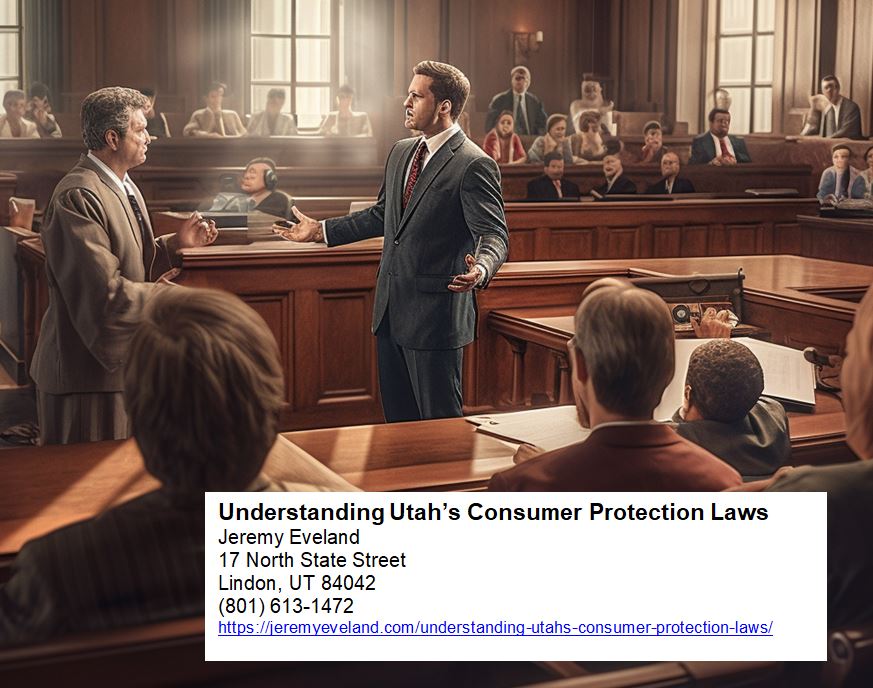If you are seeking a highly skilled and experienced business lawyer in Washington Terrace, Utah, look no further. With a deep understanding of the intricacies of business law in the state, our legal practice is dedicated to providing our clients with expert advice and representation. Our goal is to empower our clients with comprehensive knowledge, enabling them to make informed decisions and effectively navigate the complexities of the legal system. Whether you require assistance with contract drafting, business formation, or litigation, our team of attorneys is committed to delivering personalized, effective solutions tailored to your unique needs. Contact us today to schedule a consultation and put our expertise to work for you.
1. What is Business Law?
1.1 Definition of Business Law
Business law refers to the legal framework that governs the establishment, operation, and transactions of businesses. It encompasses various legal principles, regulations, and statutes that govern the relationships between individuals, organizations, and the government within the business environment. Business law covers areas such as contracts, intellectual property, employment, taxation, mergers and acquisitions, and regulatory compliance.
1.2 Importance of Business Law
Business law is essential for both small and large businesses as it provides a structured legal framework to ensure fair and ethical business practices. It helps protect the interests of businesses and individuals by establishing legal rights and obligations, enforcing contract terms, and resolving disputes. Compliance with business laws is crucial to avoid legal repercussions, financial penalties, and reputational damage.
1.3 Areas of Business Law
Business law encompasses various specialized areas, including:
- Contract law: Deals with the formation, interpretation, and enforcement of contracts.
- Employment law: Governs employer-employee relationships, including hiring, termination, wages, and workplace safety.
- Intellectual property law: Protects intangible assets such as patents, trademarks, and copyrights.
- Tax law: Deals with the taxation of businesses and individuals, including tax planning and compliance.
- Mergers and acquisitions: Involves the legal aspects of buying, selling, or merging businesses.
- Regulatory compliance: Ensures that businesses adhere to industry-specific laws and regulations.
- Dispute resolution: Involves resolving conflicts through negotiation, arbitration, or litigation.
2. Why Do You Need a Business Lawyer?
2.1 Legal Expertise and Guidance
Navigating the complex legal landscape of business requires in-depth knowledge and expertise. A business lawyer can provide valuable legal guidance, ensuring compliance with relevant laws and regulations. Their expertise allows them to identify potential legal risks and provide strategies to mitigate them.
2.2 Formation and Structure of Business Entities
When starting a business, choosing the right legal structure is crucial. A business lawyer can assist in determining whether to form a sole proprietorship, partnership, limited liability company (LLC), or corporation. They can advise on the legal requirements, tax implications, and liability protection associated with each structure.
2.3 Contract Drafting and Review
Contracts are an integral part of business operations. A business lawyer can help draft solid contracts that protect your interests and clearly outline the rights and obligations of all parties. They can also review contracts from third parties to ensure they minimize risks and align with your business objectives.
2.4 Business Transactions
Whether you are buying or selling a business, a business lawyer plays a vital role in ensuring smooth transactions. They can assist in negotiating and drafting purchase agreements, conducting due diligence, and addressing legal issues that may arise during the process. Their expertise helps safeguard your interests throughout the transaction.
2.5 Employment and Labor Law
Compliance with employment and labor laws is crucial to avoid legal disputes and penalties. A business lawyer can provide guidance on matters such as employee contracts, wage and hour compliance, anti-discrimination laws, workplace safety, and termination procedures. They can help businesses create policies and procedures that protect both employees and employers.
2.6 Mergers and Acquisitions
In mergers and acquisitions, a business lawyer plays a vital role in structuring and negotiating the deal. They can help with due diligence, drafting legal documents, obtaining regulatory approvals, and closing the transaction. Their expertise ensures that the transaction complies with all legal requirements and protects the interests of all parties involved.
2.7 Tax Compliance
Tax laws can be complex and ever-changing. A business lawyer can help navigate the intricacies of tax regulations, ensuring compliance with federal, state, and local tax requirements. They can assist with tax planning, minimizing tax liabilities, addressing audits, and resolving disputes with tax authorities.
2.8 Intellectual Property Protection
Intellectual property (IP) is often a valuable asset for businesses. A business lawyer can help protect your IP rights through patents, trademarks, copyrights, and trade secrets. They can assist in registering IP, enforcing rights, and handling infringement disputes. Their expertise ensures that your valuable creations and innovations are safeguarded.
2.9 Dispute Resolution and Litigation
Business disputes are often inevitable. A business lawyer can help resolve conflicts through negotiation, mediation, or arbitration, avoiding costly litigation where possible. In cases that escalate to litigation, they can provide skilled representation and advocate for your interests in court.
2.10 Regulatory Compliance
Businesses must comply with a wide range of regulations specific to their industry. A business lawyer can assist in understanding and complying with regulatory requirements. They can help implement compliance programs, handle regulatory inspections, and address any violations to minimize legal risks and maintain a good standing with regulatory authorities.

3. Choosing the Right Business Lawyer
3.1 Experience and Expertise
When selecting a business lawyer, it is crucial to consider their experience and expertise in your specific industry and area of legal need. Look for attorneys who have a track record of successfully handling cases or providing legal advice in business law matters similar to yours.
3.2 Understanding of State Laws
Business laws can vary from state to state. It is important to choose a lawyer who has a strong understanding of the specific laws and regulations applicable to your business in the state of Washington Terrace, Utah. This knowledge will ensure that your legal representation is tailored to the local requirements.
3.3 Availability and Communication
Effective communication and accessibility are vital when working with a business lawyer. Choose a lawyer who is responsive to your inquiries and keeps you informed about the progress of your legal matters. They should be readily available to address any concerns or questions that may arise.
3.4 Client Feedback and References
Seek feedback from previous clients or ask for references to gauge the lawyer’s reputation and client satisfaction. Online reviews, testimonials, or recommendations from trusted sources can provide insights into the lawyer’s professionalism, competence, and ability to deliver favorable outcomes.
3.5 Fees and Billing Structure
Discuss the lawyer’s fee structure and billing methods upfront to ensure transparency. Different lawyers may have different fee arrangements, such as hourly rates, flat fees, or contingency fees. Understand how the lawyer charges for their services and what expenses may be involved to make an informed decision.
4. How a Business Lawyer Can Assist You
4.1 Business Formation and Startup
A business lawyer can guide you through the process of starting a business, including entity selection, drafting and filing necessary documents, and obtaining the required permits and licenses. They can advise on compliance with state and federal regulations and help set up a strong legal foundation for your business.
4.2 Contract Negotiation and Drafting
Contracts are essential for conducting business transactions. A business lawyer can assist in negotiating and drafting contracts that protect your interests, minimize risks, and clearly outline the rights and responsibilities of all parties involved. They can ensure that the contracts comply with applicable laws and reflect your business objectives.
4.3 Intellectual Property Protection
Protecting your intellectual property is crucial for maintaining a competitive edge. A business lawyer can help you identify and protect your valuable creations, innovations, and trade secrets through patents, trademarks, copyrights, or confidentiality agreements. They can also handle infringement issues and enforce your IP rights.
4.4 Employment and Labor Law Compliance
Employment and labor laws create complex obligations for businesses. A business lawyer can provide guidance on issues such as employment contracts, workplace policies, discrimination and harassment prevention, wage and hour compliance, and termination procedures. They can help ensure that your business operates in compliance with relevant laws, reducing the risk of legal disputes.
4.5 Mergers, Acquisitions, and Restructuring
In mergers, acquisitions, and restructuring transactions, a business lawyer plays a crucial role in conducting due diligence, negotiating deal terms, drafting legal documents, obtaining necessary approvals, and closing the transaction. They can ensure that the transaction is legally sound, protect your interests, and facilitate a smooth transition.
4.6 Tax Planning and Compliance
Tax planning is essential for minimizing tax liabilities and ensuring compliance with tax laws. A business lawyer can work with your tax advisor to develop effective tax planning strategies that align with your business goals. They can also assist with tax audits, disputes with tax authorities, and ensure compliance with changing tax regulations.
4.7 Licensing and Permits
Obtaining the necessary licenses and permits is essential for businesses operating in regulated industries. A business lawyer can help you navigate the licensing process, ensure compliance with regulatory requirements, and address any issues that may arise. Their expertise can save you time, minimize delays, and prevent potential legal setbacks.
4.8 Regulatory Compliance
Staying compliant with industry-specific regulations is crucial for avoiding penalties and maintaining a good standing with regulatory authorities. A business lawyer can help you understand the regulations applicable to your business, develop compliance programs, handle regulatory inspections, and address any violations or disputes that may arise.
4.9 Dispute Resolution and Litigation
When business disputes arise, a business lawyer can explore various dispute resolution methods such as negotiation, mediation, or arbitration to reach a satisfactory resolution. If litigation becomes necessary, they can provide strong representation, protect your interests in court, and advocate for favorable outcomes.
4.10 Business Succession Planning
For business owners, planning for the future is essential. A business lawyer can assist in developing a succession plan to ensure a smooth transition of ownership or management. They can help with legal and tax considerations, draft necessary documents, and address any legal complexities associated with business succession.
5. Business Law Resources in Washington Terrace, Utah
5.1 State Bar Associations
The Utah State Bar Association provides resources and information on business law practices and offers directories to help you find qualified business lawyers in Washington Terrace. Their website and local chapters can provide valuable insights into legal requirements and updates in the field of business law.
5.2 Local Government Resources
The local government of Washington Terrace, Utah, may offer resources and guidance specific to local business laws and regulations. Contacting the city or county government offices can provide access to information on permits, licenses, zoning regulations, and other legal requirements applicable to businesses.
5.3 Small Business Development Centers
Small Business Development Centers (SBDCs) are valuable resources for entrepreneurs and small business owners. They offer free or low-cost assistance, training, and counseling on various aspects of starting and managing a business, including legal considerations. The Utah SBDC network can provide guidance and support tailored to local business needs.
5.4 Business Law Books and Publications
Finding reputable business law books and publications can be beneficial for gaining a deeper understanding of various legal principles and practices. Local bookstores, libraries, or online platforms offer a wide range of resources authored by legal experts specializing in business law.
5.5 Online Legal Resources
Online legal resources such as legal journals, websites, and blogs can provide valuable information and updates on business law in Washington Terrace, Utah. Websites like the Utah Bar Association’s website, legal research platforms, and government websites can offer insights into relevant laws, regulations, and legal precedents.
6. FAQs
6.1 What types of businesses can a business lawyer assist with?
A business lawyer can assist businesses of all sizes and types, including sole proprietorships, partnerships, LLCs, corporations, and nonprofit organizations. They can provide legal guidance throughout the life cycle of a business, from formation to dissolution, and handle various legal matters specific to your industry and business needs.
6.2 How can a business lawyer help with contract disputes?
In contract disputes, a business lawyer can assess the terms of the contract, interpret its provisions, and advise on your legal rights and obligations. They can negotiate on your behalf to resolve disputes through mediation or alternative dispute resolution methods. If escalation to litigation is necessary, they can provide strong representation in court.
6.3 What should I consider when hiring a business lawyer?
When hiring a business lawyer, consider their experience and expertise in business law and relevant industries. Look for someone with whom you can effectively communicate and who understands the specific legal requirements in Washington Terrace, Utah. Additionally, consider their availability, client feedback, and fee structure to ensure a good fit for your business needs.
6.4 How much does it cost to hire a business lawyer?
The cost of hiring a business lawyer varies depending on various factors such as the lawyer’s experience, complexity of the legal matter, and fee structure. Some lawyers charge hourly rates, while others may have flat fees or contingency fees. It is important to discuss the fee structure and billing arrangements with the lawyer upfront to understand the potential costs involved.
6.5 Do I need a business lawyer if I already have an accountant?
While an accountant plays a crucial role in managing your business finances and tax obligations, a business lawyer provides legal expertise and guidance that complements the services of an accountant. A business lawyer can help with legal compliance, contract drafting and review, dispute resolution, intellectual property protection, and other legal matters that go beyond accounting.

7. Conclusion
In today’s complex business environment, having a business lawyer by your side is essential. A business lawyer can navigate the intricate legal landscape, ensure compliance with regulations, protect your interests, and provide valuable guidance throughout the life cycle of your business. By choosing the right business lawyer in Washington Terrace, Utah, you can proactively address legal issues and position your business for success. Don’t hesitate to consult with a qualified business lawyer to ensure that your business is on solid legal footing.
If you need an attorney in Utah, you can call:
Jeremy Eveland
8833 South Redwood Road
West Jordan, Utah 84088
(801) 613-1472
https://jeremyeveland.com



